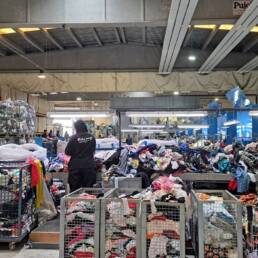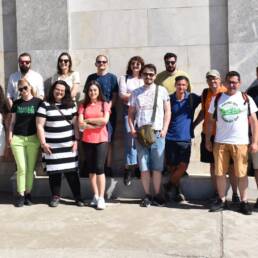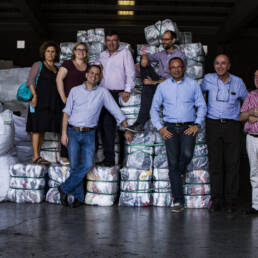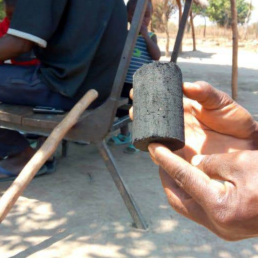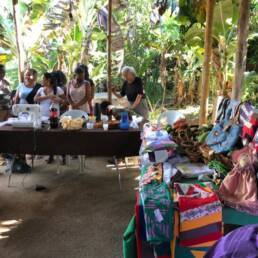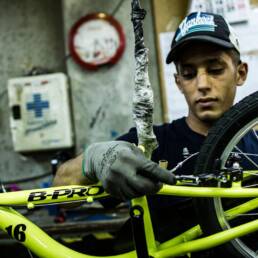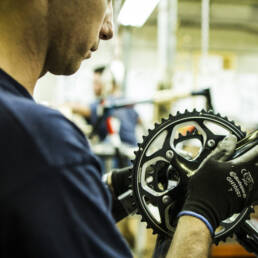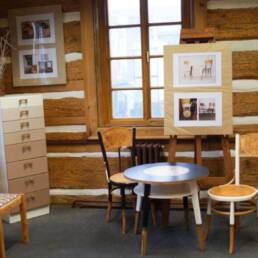Author
Susan Dabbous
Media Officer
Caritas Europa
The SIPLA project helps stop the labour exploitation of migrants living in Italy’s most remote rural areas. Unscrupulous landowners often pay migrant workers less than three euros an hour to pick fruit and vegetables. Oliviero Forti from Caritas Italy tells more about the project in this interview
If migrants in Italy live in worse conditions than they did in their home countries – hit by drought and war – then it means that something in the Italian system is seriously wrong.
Oliviero Forti, Responsible for Migration Policies and International Protection at Caritas Italy
With these words, Oliviero Forti begins to explain the efforts of the Sipla project, a continuation of the Presidio project funded in 2015, to improve migrants’ living conditions in Italy. Considering the country’s geographical position and endemic economic problems, informal agriculture workers are paid between one and three euros per hour, depending on the region. Italy’s fruit and vegetable production is thought to be worth over 11 billion euros per year. It is a business in which, according to official data, over 230,000 migrant workers were without contracts substantially in 2021. With no labour negotiating power, the number of these type of workers more than doubled during the pandemic and because of the most recent increase in arrivals from Africa. In 2022 alone, more than 100,000 people arrived in Italy by sea.

He is also part of the Caritas Europa Human Mobility Working Group and advocates for regular migration pathways at the national and European level. In this interview, he talks more about how Caritas, together with other organisations, provides legal, medical and social assistance to thousands of migrants who live in the most remote rural areas of Italy, alone or with their families.
Oliviero Forti, what is the Sipla project?
It is a national network of local facilities and services created to protect and support foreign agricultural workers against illegal hiring, informal work and labour exploitation. The SIPLA project is a continuation of the Presidio project, which was based on the idea that wherever people in need cannot reach a Caritas branch, then it is Caritas that must reach them. In other words, we set up mobile offices, vans and tents in some of the most forgotten and neglected rural fields in Italy to inform migrants that, yes, even those without a regular permit to stay in Italy have rights. In addition, SIPLA gives guidance, assistance and training to guarantee the protection of workers’ rights at the local and national levels. We have 50 projects in 15 regions.
What kind of fears do migrants have?
They believe that without a regular permit to stay in Italy, they cannot go to the doctor, their children cannot go to school, or they think they cannot report to the police crimes they witness or experience first-hand. But this is not true. Italian regulations protect every sort of human right. Moreover, three months after presenting their asylum application, they have the right to work, but most of the time but often they are unaware of this.
How are migrants’ living conditions in the fields?
They live in slums. And most shockingly, when they have their families with them, the children also live in these slums where the sanitary conditions can be much worse than in the refugee camps I have seen in Ethiopia, for instance. Caritas is trying to take these people out of the informal workforce by telling them, look, there is an alternative, it might take time, but slavery should not be an option nowadays in Europe.
What kind of solutions does SIPLA offer?
First of all, we inform migrants about their rights. By working in partnership with local actors, such as local councils and businesses, we put them in touch with honest entrepreneurs looking for labour and, so far, we have created successful alternative models based on fairness. We have helped thousands of migrants to find formal jobs by putting them in contact with honest business owners. Once they have a regular job, they usually improve their living conditions. We have tried to find solutions for decent housing, but it is unfortunately extremely difficult. Furthermore, children in many of the slums do not go to school since they have no means of transportation. SIPLA has organised private transfers from the fields to the schools in many regions.

Can you give an example?
We worked very well with Coop, the Italian chain of food production and supermarkets, on a large scale. Such supermarkets need to prove that exploited workers do not make the products they sell. Another significant project – also related to the food industry – provides training. Migrants have been trained to use specific types of machinery to transform, manufacture and prepare packaging. For instance, in many tomato plantations, the factories make tomato sauce in cans or bottles.
What do you expect from the EU and European governments?
European governments need to increase labour inspections to enforce existing rules and regulations around informal work. Employers who violate the law should be sanctioned. Governments should offer incentives to employers to hire workers on formal contracts with decent working conditions, to grant secure and sustainable residence status and to expand regularisation possibilities for undocumented workers. As we know, the agri-food sector is particularly prone to the exploitation of migrants. The pressure imposed by supermarkets and intermediaries to lower the prices of agricultural products and food leads farmers to rely on cheap labourers who are often exploited. The problem goes beyond the issue of migration, as this relates to the broader system of food production and consumption, which needs to become more sustainable in terms of decent working conditions as well as health, environmental and economic criteria.


